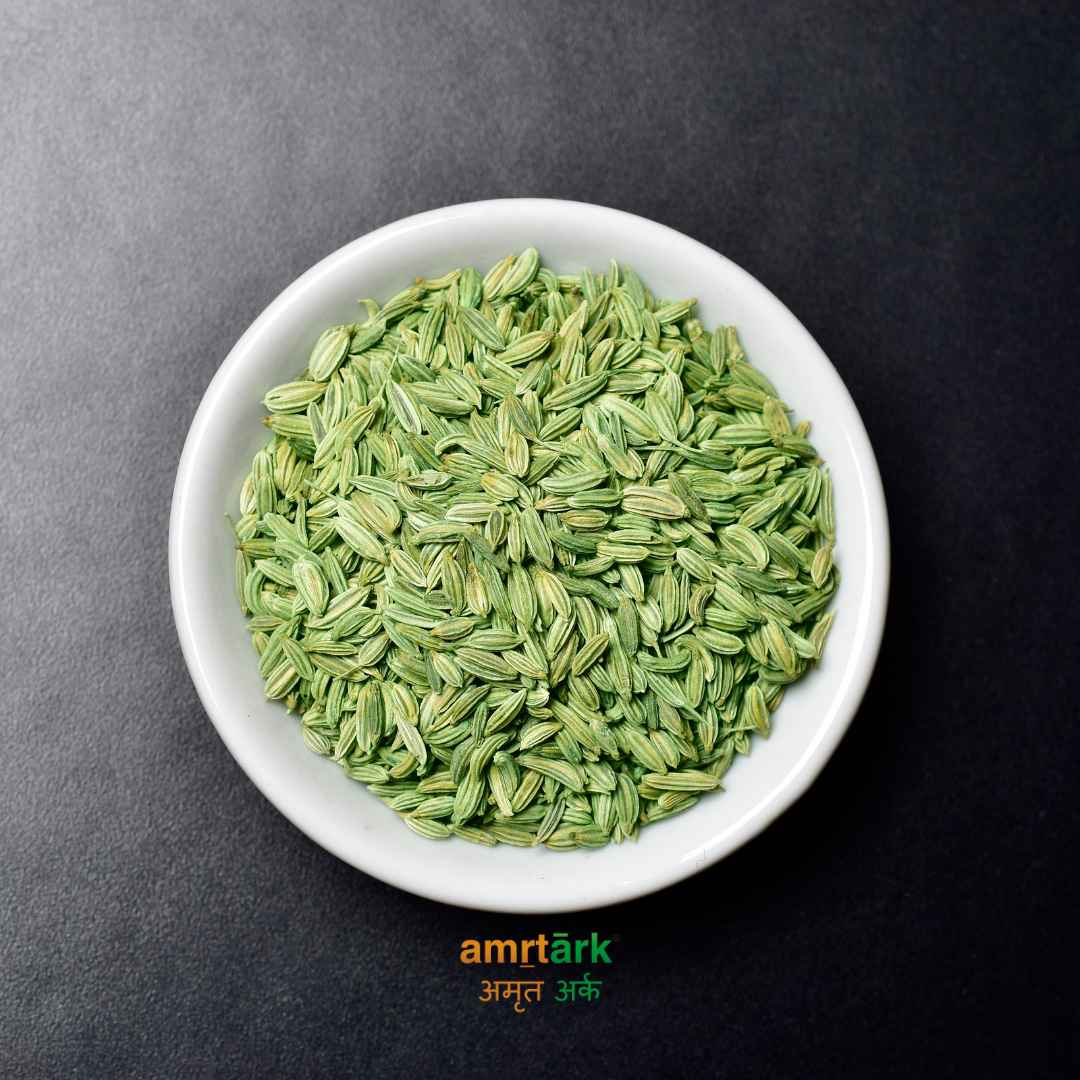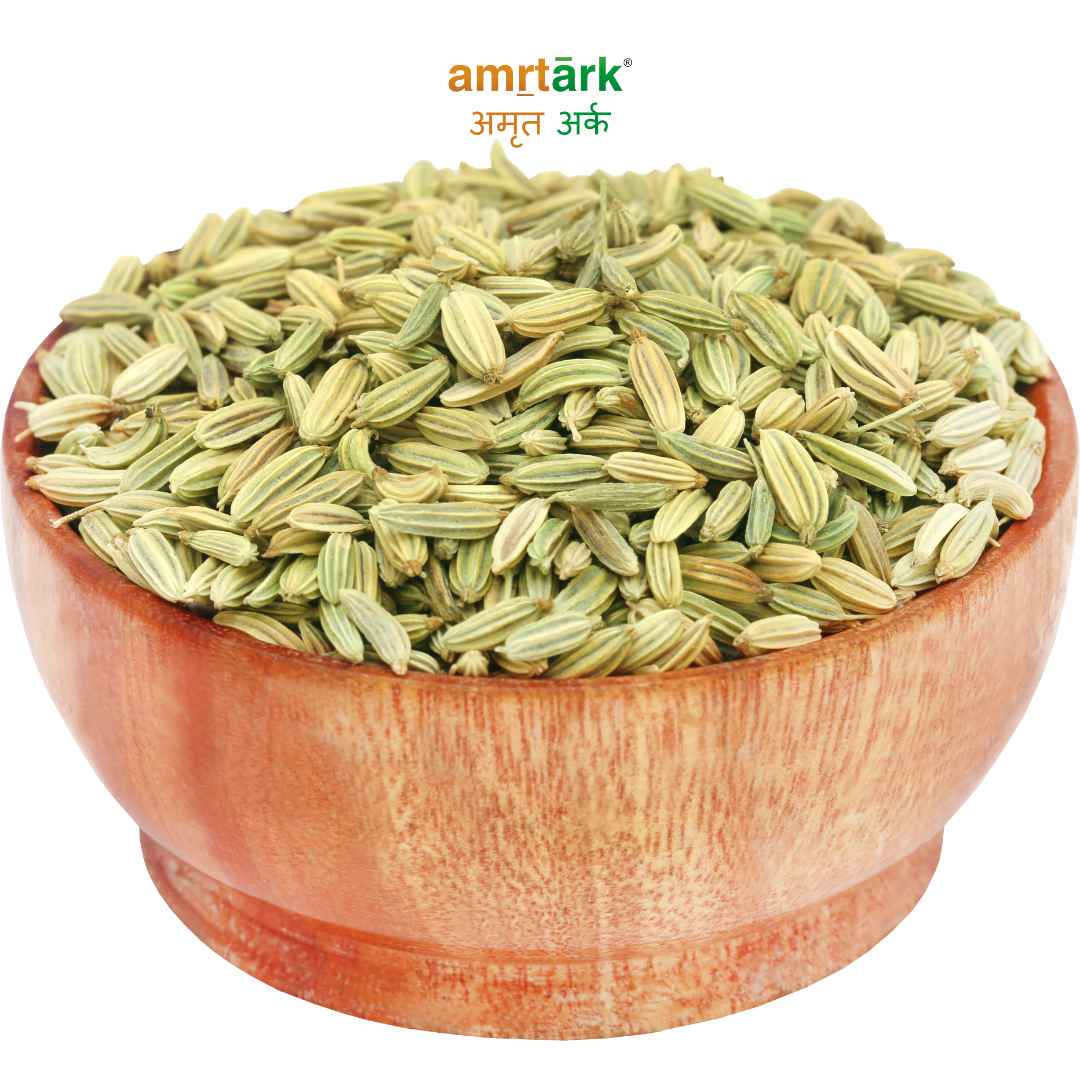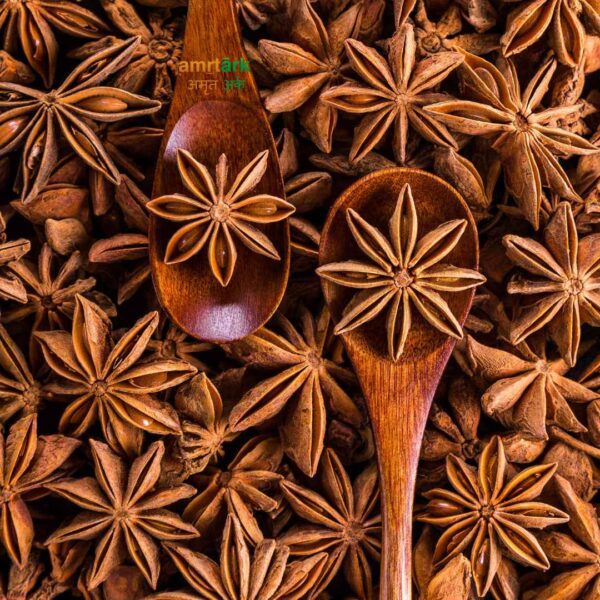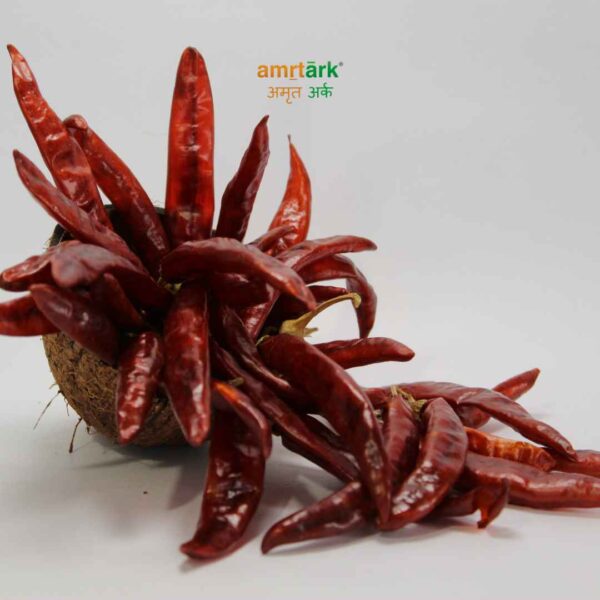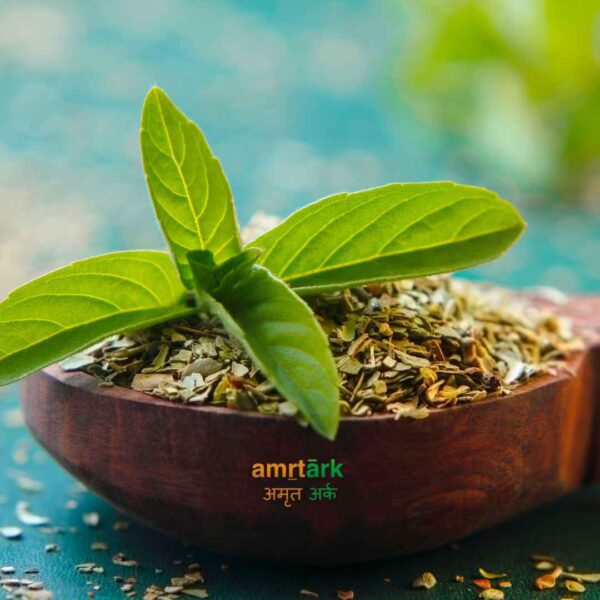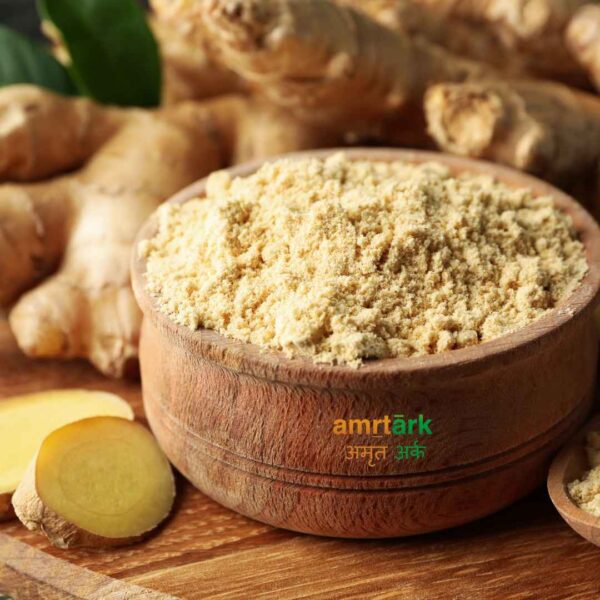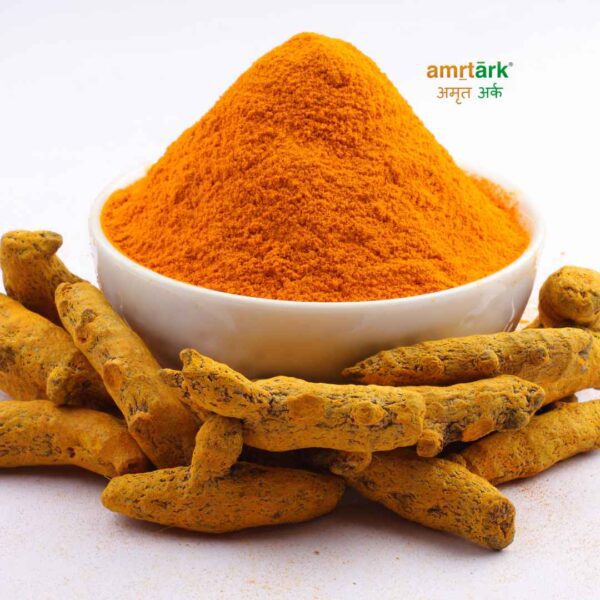Description
Fennel Seeds (Foeniculum vulgare)
Fennel seeds, derived from the fennel plant (Foeniculum vulgare), are small, oval, and light green to brown in color. These seeds are widely recognized for their aromatic, sweet, and slightly licorice-like flavor. Fennel seeds are commonly used in culinary and medicinal practices across many cultures, particularly in Indian, Mediterranean, and Middle Eastern cuisines. They are celebrated for their digestive properties and numerous health benefits, making them a staple in spice cabinets and herbal medicine.
Botanical Characteristics
- Common Names: Fennel seeds, saunf, sweet cumin, aniseed
- Scientific Name: Foeniculum vulgare
- Family: Apiaceae (the carrot or parsley family)
- Origin: Native to the Mediterranean region but now cultivated in various parts of the world, including India, China, and Egypt.
Appearance and Flavor Profile
Fennel seeds are small, elongated, and slightly curved, with prominent ridges running lengthwise. The seeds range in color from light green to brown, with fresh seeds being more vibrant green. As they age, they turn brown and lose some of their potency.
The seeds have a unique flavor, with a sweet, licorice-like taste reminiscent of anise. They are mildly aromatic and offer a refreshing, cooling aftertaste. This sweet-spicy profile makes fennel seeds ideal for both savory and sweet dishes.
Culinary Uses of Fennel Seeds
Fennel seeds are used both whole and ground in various culinary traditions. Here are some common uses:
- Spice Blends: Fennel seeds are a key ingredient in spice blends such as panch phoron (a five-spice blend from India), Chinese five-spice powder, and Italian sausage seasoning. They are also used in masalas and pickling spice mixtures.
- Curries and Stews: In Indian cuisine, fennel seeds are often added to curries, stews, and gravies for their sweet, aromatic flavor. They pair well with other spices like cumin, coriander, and turmeric.
- Baked Goods: In European and Middle Eastern baking, fennel seeds are used to flavor bread, cakes, and biscuits. They are also added to savory pastries and flatbreads.
- Meat and Fish: Ground fennel seeds are used to season roasted or grilled meats, fish, and poultry, particularly in Mediterranean and Middle Eastern dishes. Fennel enhances the flavor of sausages, especially Italian varieties.
- Vegetable Dishes: Fennel seeds add a delicate sweetness to sautéed or roasted vegetables, particularly carrots, potatoes, and eggplants.
- Teas and Beverages: Fennel seed tea is a popular herbal drink used to aid digestion and soothe the stomach. The seeds are steeped in hot water to extract their essential oils and beneficial compounds. Fennel tea is often combined with other herbs like coriander and cumin.
- Mouth Fresheners: In India, roasted fennel seeds, often mixed with sugar or other flavorings, are chewed after meals as a natural mouth freshener and digestive aid. Known as mukhwas, this practice is common in Indian households and restaurants.
- Pickling: Fennel seeds are used in pickling brines for vegetables, lending their sweet-spicy flavor to pickles.
- Sweet Dishes: Fennel seeds are added to desserts like puddings, ice creams, and sweets in many cultures, providing a subtle sweetness and aromatic depth.
Health Benefits of Fennel Seeds
Fennel seeds have been valued for their medicinal properties for centuries. They are rich in essential nutrients, including dietary fiber, vitamins (especially vitamin C), and minerals like calcium, iron, and potassium. The seeds also contain powerful plant compounds such as anethole, which contribute to their health benefits:
- Aids Digestion: Fennel seeds are best known for their digestive benefits. They help stimulate the production of digestive enzymes, which can reduce bloating, gas, and indigestion. Fennel seed tea is a popular remedy for stomach cramps and irritable bowel syndrome (IBS).
- Relieves Constipation: The high fiber content in fennel seeds promotes healthy bowel movements and helps relieve constipation. They act as a mild laxative and stimulate gut motility.
- Antioxidant Properties: Fennel seeds contain powerful antioxidants like flavonoids and phenolic compounds that help neutralize free radicals, reduce oxidative stress, and lower the risk of chronic diseases like cancer and heart disease.
- Anti-inflammatory Effects: Fennel seeds possess anti-inflammatory properties that can help reduce inflammation in the body, making them useful in managing conditions like arthritis and inflammatory bowel disease.
- Hormonal Balance: Fennel seeds have been traditionally used to promote hormonal balance in women. They are believed to mimic the action of estrogen, helping alleviate symptoms of menopause, PMS, and menstrual cramps. Fennel seeds are also used to promote lactation in breastfeeding women.
- Improves Respiratory Health: The essential oils in fennel seeds have expectorant properties, which help clear mucus and phlegm from the airways, making them beneficial for respiratory issues like coughs, asthma, and bronchitis.
- Regulates Blood Pressure: Fennel seeds are rich in potassium, which helps regulate blood pressure by balancing the effects of sodium in the body. Potassium is essential for maintaining proper fluid balance and promoting healthy heart function.
- Supports Weight Loss: Fennel seeds may aid in weight loss by promoting digestion and boosting metabolism. They help reduce water retention and bloating, making them useful in weight management programs.
- Antimicrobial Properties: Fennel seeds have antimicrobial properties that help protect against harmful bacteria and fungi. This makes them effective in treating infections and supporting oral health by preventing bad breath and cavities.
- Improves Skin Health: The antioxidant and antimicrobial properties of fennel seeds can help improve skin health. Consuming fennel seeds may help prevent acne, reduce signs of aging, and promote a healthy complexion.
Traditional and Ayurvedic Uses
In Ayurveda, fennel seeds (known as Saunf) are classified as a cooling spice and are used to balance Pitta dosha, which governs heat in the body. Fennel seeds are commonly used to treat digestive disorders, reduce heat-related conditions like acidity, and improve eyesight. Fennel seed water (saunf ka pani) is a traditional remedy for reducing body heat and promoting digestive health.
In traditional Chinese medicine (TCM), fennel seeds are used to treat digestive issues, cold symptoms, and poor appetite. They are considered to have warming properties and are used to disperse cold from the body.
Nutritional Profile (per 100g of fennel seeds)
- Calories: 345 kcal
- Protein: 15.8 g
- Fat: 14.9 g
- Carbohydrates: 52.3 g
- Fiber: 39.8 g
- Calcium: 1196 mg
- Iron: 18.54 mg
- Magnesium: 385 mg
- Potassium: 1694 mg
- Vitamin C: 21 mg
Fennel Seeds vs. Fresh Fennel
While fennel seeds and fresh fennel (bulbs and fronds) come from the same plant, they offer different flavors and uses:
- Flavor: Fennel seeds have a more concentrated, sweet-spicy flavor, whereas fresh fennel has a milder, slightly sweet, and anise-like taste.
- Culinary Use: Fresh fennel is often used as a vegetable in salads, soups, and roasted dishes, while fennel seeds are primarily used as a spice for flavoring.
- Storage: Fennel seeds have a longer shelf life and can be stored in airtight containers, while fresh fennel needs to be consumed within a few days.
How to Use Fennel Seeds in Cooking
- Toasted or Raw: Fennel seeds can be used raw or lightly toasted to release their essential oils and enhance their flavor.
- In Spice Mixes: Add fennel seeds to spice mixes for curries, pickles, or stews.
- As a Digestive Aid: Chew a small amount of fennel seeds after meals to aid digestion.
- In Herbal Teas: Brew fennel seeds with hot water to make a soothing digestive tea.
Side Effects and Precautions
Fennel seeds are generally safe for most people when consumed in moderation. However, excessive intake may lead to certain side effects:
- Allergic Reactions: Some individuals may experience allergic reactions to fennel seeds, such as itching, rashes, or swelling.
- Hormonal Effects: Due to their estrogen-like properties, excessive consumption of fennel seeds may interfere with hormone-sensitive conditions like breast cancer or endometriosis. It’s advisable for individuals with these conditions to consult a doctor before consuming large amounts of fennel seeds.
- Photosensitivity: In rare cases, fennel seeds may increase sensitivity to sunlight, leading to a higher risk of sunburn.

